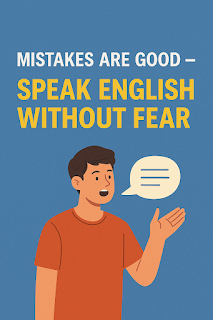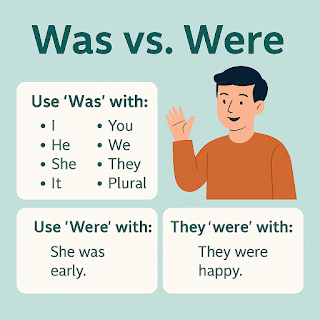Mistakes are good to Speaker

Mistakes Are Good – Speak English Without Fear Written by: slow english practice team If you're afraid of making mistakes when speaking English, you're not alone. But here’s the truth: Mistakes are not bad. Mistakes are proof that you're learning Whether you are a beginner or intermediate speaker, your main goal should be communication, not perfection. 1. Everyone Makes Mistakes – Even Native Speakers Yes, i have seen also, even people who speak English from birth make small grammar and vocabulary mistakes. The difference is — they don't stop speaking. 🔹 Example: A native speaker might say: "Me and my friend went..." (Technically wrong, but common) 👉 So, if native speakers can speak without fear of small mistakes, so can you 2. Mistakes Help You Remember Better When you make a mistake and correct it, your brain learns faster and deeper. 🔸 You say: He don’t like it. 🔁 Someone corrects you: “He doesn’t like it.” 💡 Now you'll likely never...






